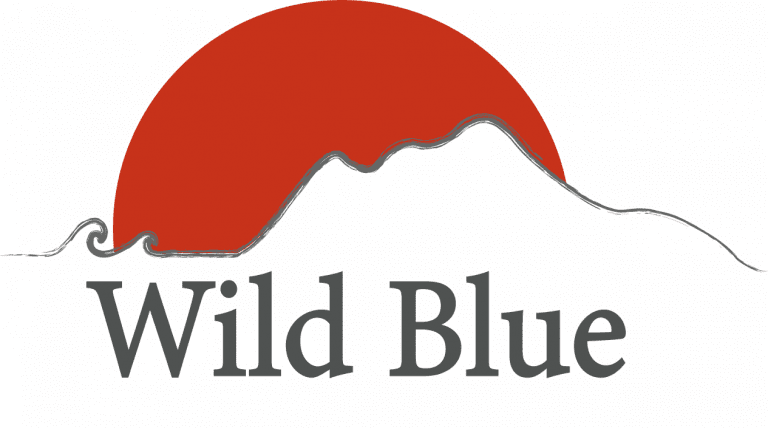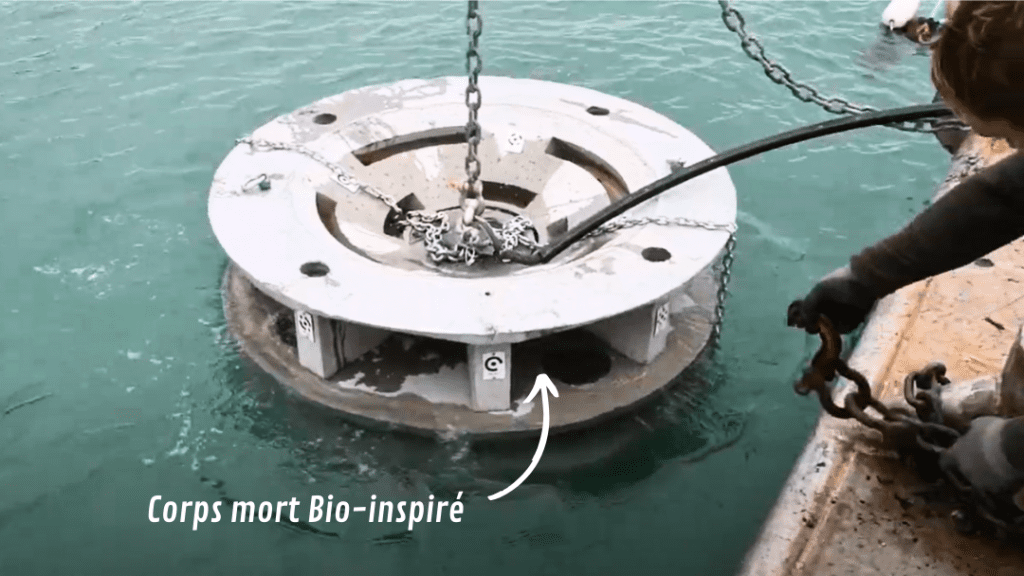ARTIFICIAL REEFS TO PROTECT THE SEAFLOOR
The impact of human activity on the seafloor
Numerous economic activities are linked to the exploitation of the sea and its resources: fishing and aquaculture, tourist activities, leisure activities: pleasure boating, surfing, diving, etc. The infrastructures required for these activities often have an impact on marine ecosystems, such as the loss of populations and species, migration and the establishment of invasive species. As a result, natural reefs can disappear..
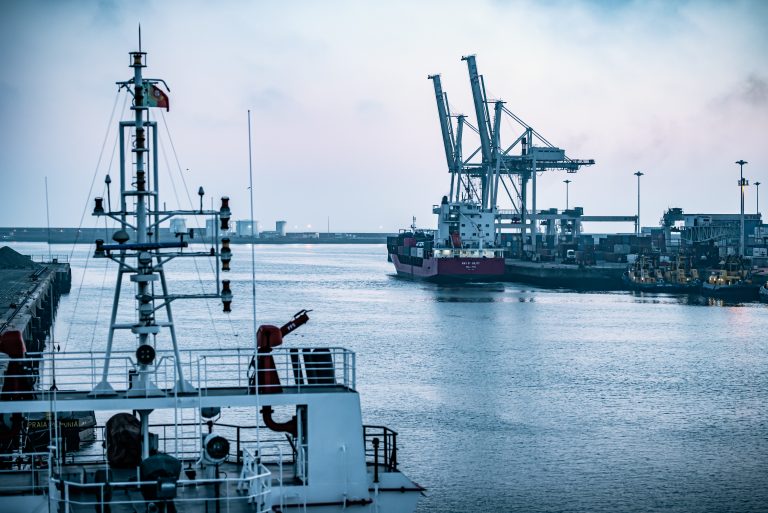
Redesigning our marine infrastructures
Bio-inspired marine infrastructures are man-made structures designed to mimic the features and complexity of natural reefs. They provide additional habitats for marine species and help preserve biological diversity in the oceans. 3D artificial reefs are particularly promising, as they represent an evolutionary departure from the traditional mooring systems used to anchor ships. By using more durable materials and creating complex designs, they offer an ideal environment for many marine species. These bio-inspired reefs can serve as refuges, breeding grounds and nurseries for a wide variety of marine organisms, including fish, algae, sponges, crustaceans and molluscs.
As part of the Marineff program, the buoys are made of concrete and include 20% oyster shells from catering waste. 4 artificial sites have been immersed in the Bay of Saint-Malo. Marineff divers carry out scientific monitoring of each site 4 times a year. They are also used as biodiversity sampling tools in the Bay of Saint-Malo.
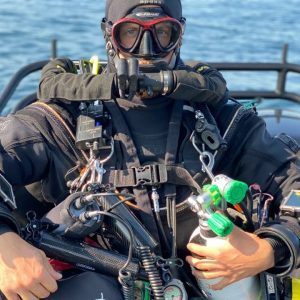
Citizen Science dives on artificial reefs
We were lucky enough to take part in this exciting participatory science diving project. Participatory science offers a unique opportunity for divers to contribute to scientific projects while discovering the wonders of the seabed.
Citizen science diving involves meticulous exploration of the seabed, where each diver is equipped with a board to note the presence or absence of marine species, whether ascidians, sponges, mollusks, crustaceans, fish, algae or other life forms. However, this task is far more complex than it seems. Underwater, colors and shapes are not always as clear as they appear in books, and visibility in Saint-Malo is rarely that of crystal-clear water.
The aim of this experiment is to identify species in a 1 m² square. This required us to master our underwater stabilization in order to stay within the same identification zone. However, with a bit of practice, we learned to recognize the clues used to identify each species. We took a short training course to enable us to recognize the species and obtain quality data. For us, it was a great opportunity to learn more about the marine life we observe during our dives in the Bay of Saint-Malo. And no 😉 sponges and ascidians are not plants. Sponges are classified in the animal reign, while ascidians are invertebrate marine organisms.
Our participatory science diving experience was a true voyage of learning and discovery, offering us the opportunity to actively contribute to the preservation of marine life. It has strengthened our understanding of the oceans. We hope our story will inspire other travelers to join similar initiatives around the world to protect our precious seabed.
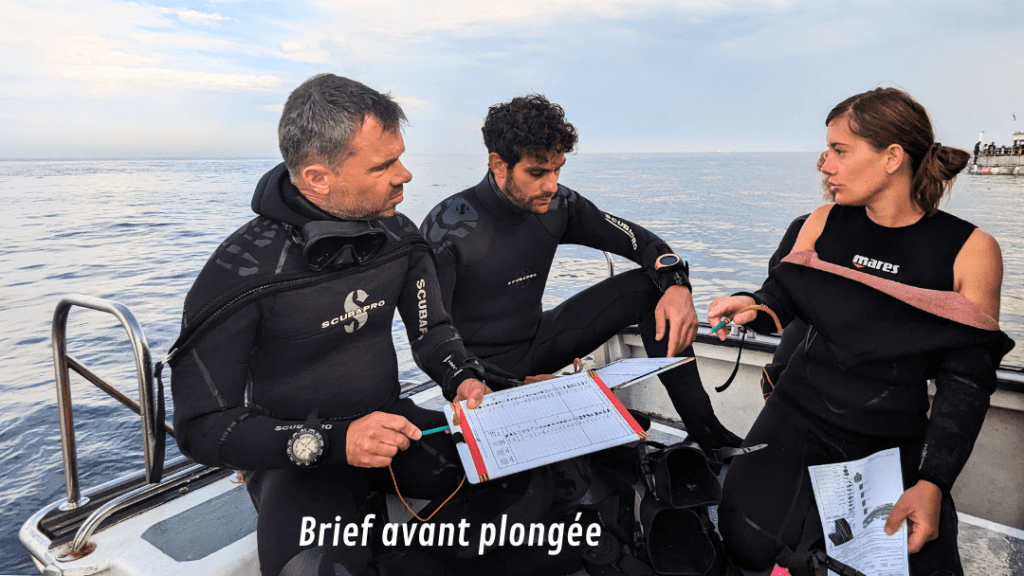
Acknowledgments
A big thank you to Valentin Danet for taking the time to interview us, and to all the ambassadors for their good humour, motivation and passion for the ocean!
